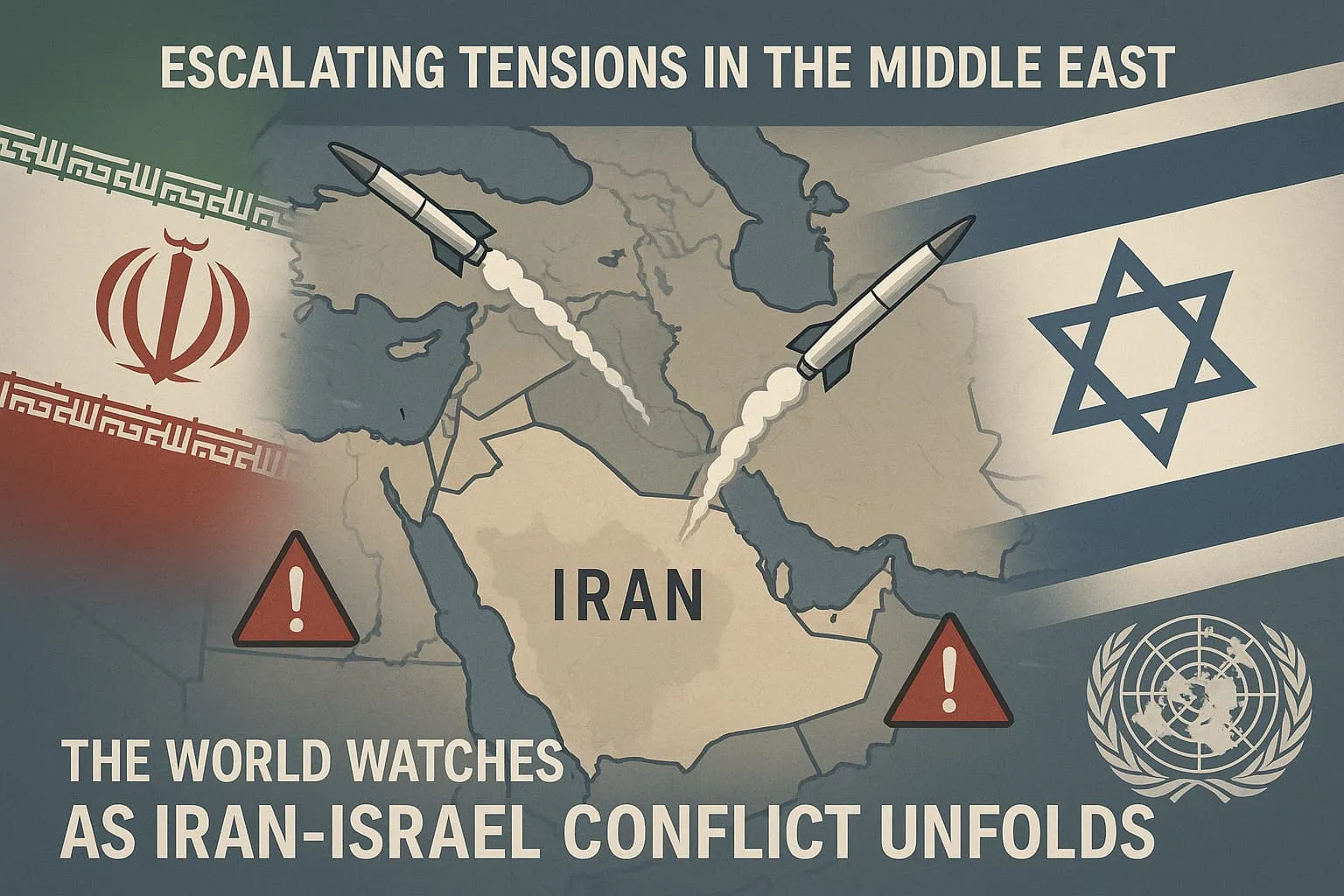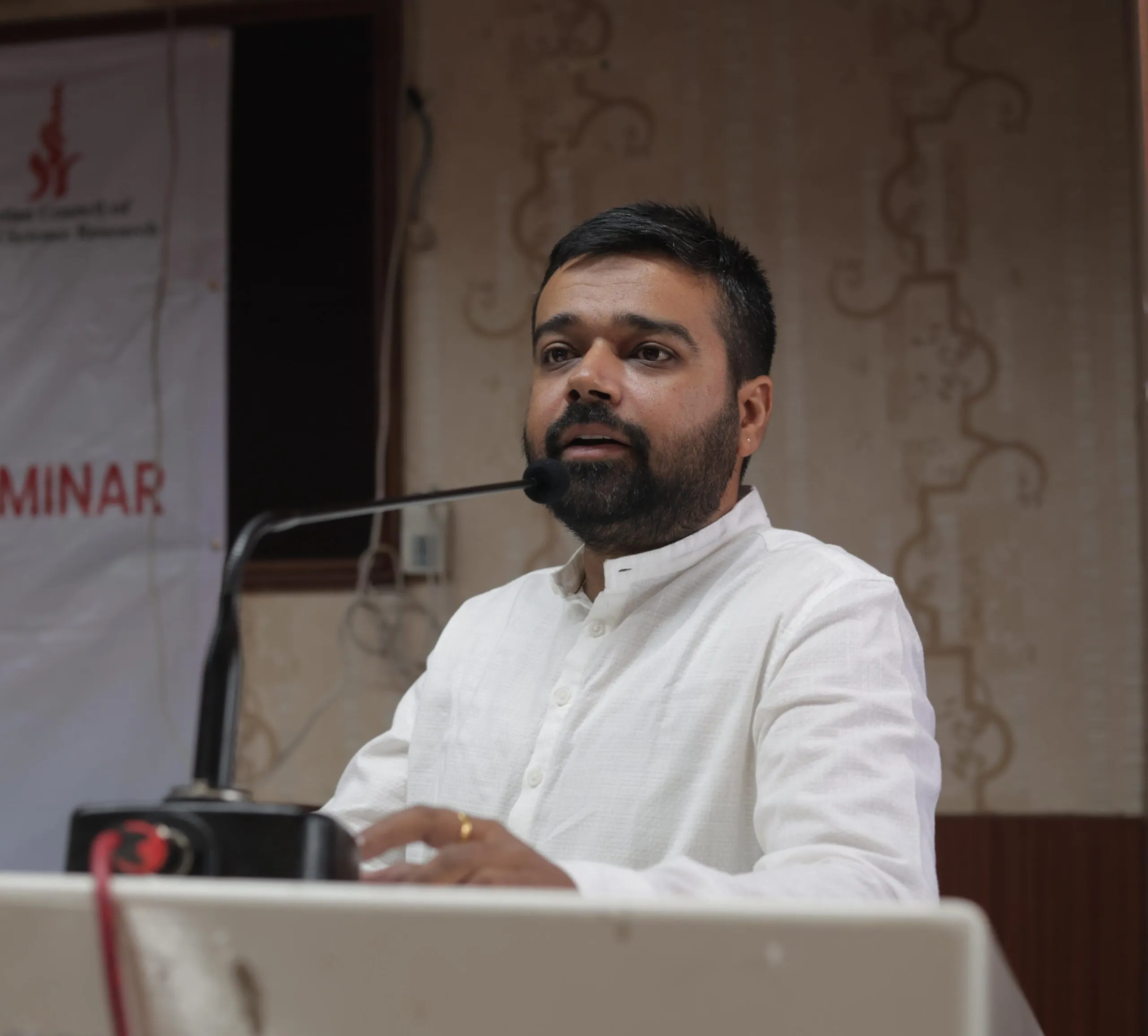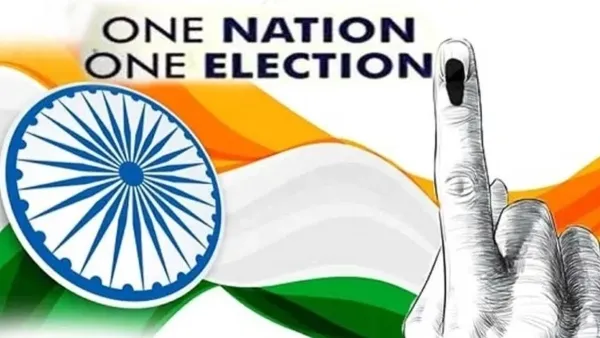
Escalating Iran-Israel Tensions: A Conflict Rewriting West Asia’s Strategic Map
- Jan 10, 2025
- Reading Time : 6 mins read
Tensions between Iran and Israel, long fraught with hostility, have exploded into one of the most dangerous confrontations in the Middle East in decades. What began as a long-standing shadow conflict has now spilled over into direct military strikes, threatening not only regional peace but also global energy and economic stability.
From Allies to Adversaries: A Brief History of Iran-Israel Relations
In a historical irony, Iran was one of the first Muslim-majority nations to recognize Israel after its establishment in 1948. Under the pro-Western Pahlavi monarchy, Iran maintained close economic and strategic ties with Israel, even supplying it with oil during the Arab boycott.
However, this relationship came to a screeching halt after the 1979 Islamic Revolution. Ayatollah Khomeini’s regime redefined Iran’s foreign policy, positioning Israel as an illegitimate occupier of Palestine. The new theocratic leadership in Tehran saw Israel and its U.S. backing as central antagonists in a broader ideological and geopolitical struggle.
Deepening Hostilities: From Cyberwarfare to Proxy Battles
In the decades since, Iran’s regional ambitions have increasingly clashed with Israel’s security doctrines. Iran’s support for militant groups like Hezbollah and Hamas, both of which oppose Israel, has drawn the two countries into a web of proxy conflicts.
Tensions escalated further with Israel’s covert sabotage of Iranian nuclear facilities, including the 2010 Stuxnet cyberattack, jointly developed with the U.S., that disrupted operations at Iran’s Natanz enrichment plant.
Flashpoint: The October 2023 Hamas Attack and Beyond
The latest round of violence was triggered by the October 7, 2023, attack by Hamas on Israeli territory. Iran-backed Hezbollah in Lebanon and the Houthis in Yemen followed suit, launching missiles and drones to pressure Israel into halting its Gaza campaign.
The turning point came when Israeli jets struck the Iranian consulate in Damascus in April 2025, killing senior Iranian military commanders. Iran retaliated with an unprecedented aerial assault: over 300 drones and missiles targeted Israeli cities. Though most were intercepted with U.S. and allied support, the message was clear: Iran was no longer content with proxy battles.
Israel’s Response: Strikes Deep Inside Iran
In a bold escalation, Israel launched airstrikes targeting sensitive Iranian military and nuclear facilities. It was the most direct and widespread attack on Iranian soil since the Iran-Iraq war of the 1980s. Civilian and government infrastructure in Tehran and other major cities has also suffered damage, with rescue efforts still ongoing.
The strikes came just as nuclear talks between the U.S. and Iran reached a fragile stage. The International Atomic Energy Agency (IAEA) had recently reported Iran’s stockpile of 60% enriched uranium was nearing weapons-grade levels. The IAEA’s board also declared Iran in breach of its non-proliferation obligations, the first such accusation in 20 years.
Diplomacy Deadlocked
Iran suspended the next round of nuclear talks, accusing the U.S. of bias and bad faith. Tehran sees the growing military pressure as part of a broader strategy to force its surrender. Supreme Leader Ayatollah Ali Khamenei reiterated that uranium enrichment is a “red line” and warned that continued attacks could compel Iran to reassess its nuclear restraint.
Global Consequences: Energy Markets on Edge
The attacks have rattled global oil markets. Iran, which holds around 9% of global oil reserves, exports up to 2 million barrels a day, mainly to China. Any disruption to this output—or to transport through the Strait of Hormuz, a chokepoint for 20% of global oil flows—poses systemic risk.
Brent crude surged over 6%, and West Texas Intermediate rose more than 5% after the Israeli strikes. Experts warn that if the conflict escalates, fuel prices will rise sharply worldwide, including in India, Australia, and Southeast Asia. This could spur inflation, delay central bank rate cuts, and strain economies already battling high energy costs.
Even countries not importing Iranian oil, like Australia, are vulnerable. Australian fuel prices are pegged to global benchmarks, and any spike in crude oil prices affects domestic transport, logistics, and agriculture.
The Road Ahead: Few Good Options
Iran’s leadership is now pursuing a strategy of calibrated escalation. It seeks to project strength without triggering full-scale war with Israel or direct U.S. intervention. But that balance is hard to maintain. Already, Iranian strikes have caused significant damage in Tel Aviv and Jerusalem, while Israeli responses continue to hit deep within Iran’s borders.
In Tehran’s view, any concession now would not stave off regime change; it would invite it. The ruling elite believes that standing firm is the only way to maintain legitimacy at home and deter further foreign aggression.
At the same time, Israel appears determined to keep Iran from achieving nuclear capability, even if it means widening the war.
Sources: The Conversation & Indian Express
Conclusion - What began as a cold war has become an open conflict, reshaping the security landscape of West Asia. The risks of miscalculation are immense, not only for Iran and Israel but for global energy markets, diplomatic stability, and economic security. As oil prices surge and nuclear diplomacy stalls, the world watches nervously.

Dr Rohil is an accomplished academic and researcher, holding a Ph.D. in Political Science from Panjab University, Chandigarh, and bring over five years of experience in teaching, research, and academic administration. Read more
Social Scholars is an online magazine featuring premium articles and posts in English and Hindi, focusing on social issues and news briefs. Share your perspectives and be part of an informed dialogue.
📩 Send your articles to:[email protected]
Leave a Comment
Categories
All
Books
Environment
Health
Bharat
History
Politics
Economy
Society
Science & Technology
Policy
World
News & Opinion
IKS
Defence
Panjab
Special Report



